Speaker
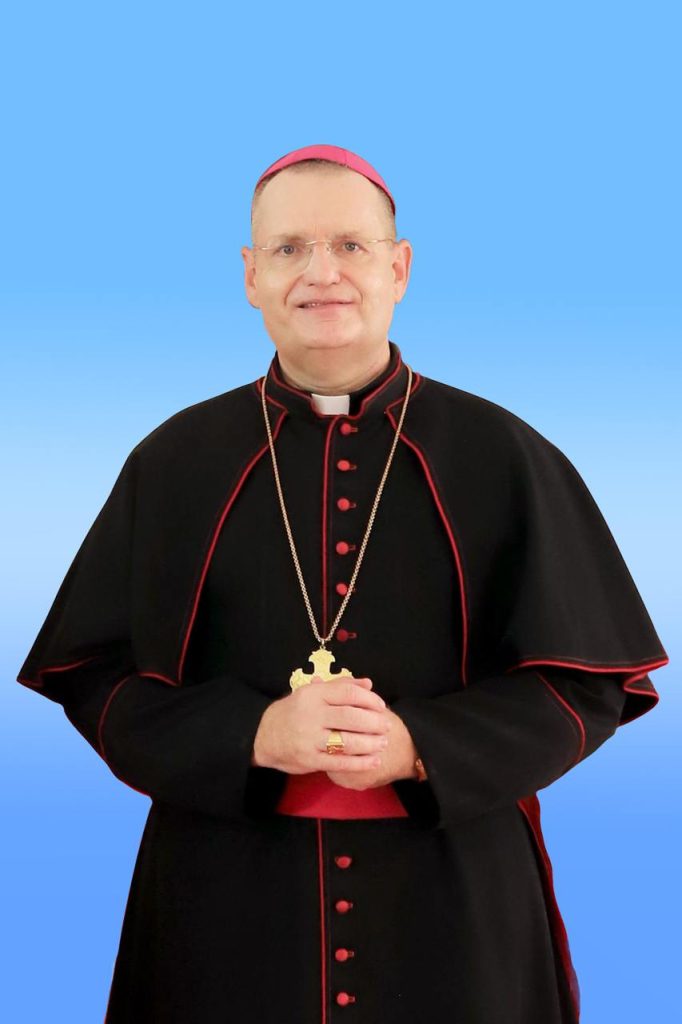
H.E. Bishop Olivier Schmitthaeusler
Early Life and Education
Bishop Olivier Schmitthaeusler was born on 26 June 1970 in Strasbourg, France. He was baptized on 9 September 1970 at St. Louis Church in Robertsau, Strasbourg. In June 1989, he graduated from Lycée Jean Monnet in Strasbourg. In September 1989, he entered the Major Seminary of Strasbourg.
From 1989 to 1991 and again from 1994 to 1998, he studied philosophy and theology at the University of Human Sciences, Theological Faculty of Strasbourg, earning both a Master’s degree and a DEA in Theology. Between 1991 and 1994, he served his civil service as a French lecturer at the Catholic University of Osaka in Japan. In 1994, he joined the Paris Foreign Missions Society (MEP) as a seminarian. During 1997–1998, he pursued a Canonical Licence in Theology at the Institut Catholique de Paris.
Ordination and Mission in Cambodia
He was ordained a deacon for the MEP in 1997 in Obernai, Alsace, and was ordained a priest on 28 June 1998 at Notre-Dame Cathedral in Strasbourg. On 9 November 1998, he arrived in Phnom Penh, Cambodia, to begin his missionary work.
From 1998 to 2001, he studied the Khmer language, including one year at the Royal University of Phnom Penh in the Khmer Literature Department. On 14 January 2002, he was appointed Parish Priest for the Kampot–Takeo pastoral sector in the Apostolic Vicariate of Phnom Penh.
Educational and Social Initiatives
Bishop Olivier Schmitthaeusler has been deeply involved in education and social work in Cambodia:
- In 2002, he founded St. Theresa Kindergarten in Chomkatieng, Takeo province.
- In 2003, he founded St. Francis High School in Takeo Province.
- In 2006, he established the Kampot Cultural Center at Kampot Province.
- In 2009, he founded the Saint Paul Institute, a higher education institution in Takeo province.
- In 2011, he established Peace Village to support children with disabilities and people living with HIV in Takeo province.
- In 2014, he built the Phnom Penh Pastoral Center in Phnom Penh city, and founded the Coco de Takeo Handicraft Center in Takeo province.
- In 2015, he founded St. Francis Technical High School in Takeo Province.
- In 2016, he founded St. Francis Primary School and Arts in Chomkatieng, Takeo province.
- In 2022, he established the Paradise Eco Farm in Kampot province.
Leadership Roles
From 2003 to 2010, he was in charge of the Catholic Education Office in Phnom Penh. He served as Vicar General under Bishop Émile Destombes from 2007 to 2009. Since 2008, he has served as the General Secretary of the Episcopal Conference of Laos and Cambodia (CELAC).
On 24 December 2009, he was appointed Coadjutor Bishop of Phnom Penh and Titular Bishop of Catabum Castra. He was ordained Coadjutor Bishop on 20 March 2010, and succeeded Bishop Émile Destombes as Apostolic Vicar of Phnom Penh on 1 October 2010.
From 2014 to 2019, he served as President of the Laos and Cambodia Bishop’s Conference. In 2010, he was granted Cambodian citizenship.
Honors and Distinctions
In recognition of his contributions, Bishop Olivier Schmitthaeusler has received numerous national and religious honors:
- Grand Order of National Merit (2022) for his overall work.
- Royal Order of Sahametrei – Grand Cross (awarded twice for contributions to education).
- Royal Order of Monisaraphon – Grand Cross (awarded three times, including once for fostering Buddhist-Christian relations in 2025).
- Medal of National Construction (awarded three times for contributions to education).
- In 2023, he received the high Buddhist benefactor distinction Mohaoubassoc from the Phnom Penh Venerable Patriarch.
Cardinal George Jacob Koovakad
H.Em. Cardinal George Jacob Koovakad is the Prefect of the Dicastery for Interreligious Dialogue at the Vatican. Born in 1973 in Chethipuzha, Kerala, India, and ordained a priest in 2004, he has served the Holy See in various diplomatic postings, including Algeria, South Korea, Iran, Costa Rica, and Venezuela. He also worked in the Section for General Affairs of the Secretariat of State, where he coordinated apostolic journeys. He was created a Cardinal by Pope Francis in December 2024 and subsequently appointed Prefect of the Dicastery for Interreligious Dialogue in January 2025, also by Pope Francis. Known for his deep commitment to intercultural dialogue and global peacebuilding, Cardinal Koovakad brings extensive experience from both diplomatic and pastoral service in diverse cultural settings.
We are honored to welcome Cardinal Koovakad to Cambodia, where—representing the Holy See and the newly elected Pope Leo XIV—he graciously joins us in person to deliver a message of encouragement at the Inaugural Session of the 8th Buddhist-Christian Colloquium.
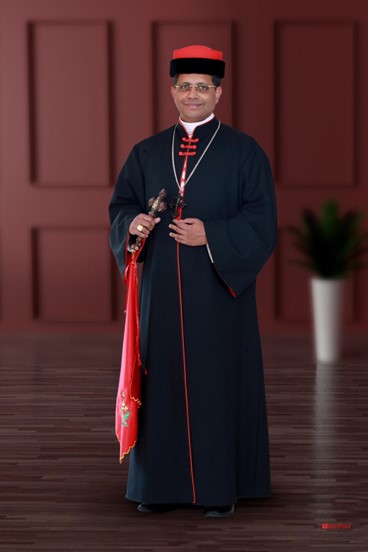
H.Em. Cardinal Stephen Chow, S.J.
Cardinal Stephen Chow, S.J., was born in 1959 in Hong Kong. He joined the Society of Jesus in 1984, and was ordained priest in 1994.
As an educator and a psychologist, he earned a Doctorate in Human Development and Psychology (Ed.D.) from Harvard University in 2006. He professed his final vows in 2007.
He served as an educator, school chaplain, board member and supervisor of the two Jesuit schools in Hong Kong, as well as a board member of other Jesuit schools in the Jesuit Chinese Province. His heart is always close to the education and youth ministry.
Pope Francis appointed him Bishop of the Catholic Diocese of Hong Kong in 2021, while he was serving as the Provincial Superior of the Jesuit Chinese Province (2018-2021).
He was created Cardinal in 2023, and was then appointed to the Dicastery for Interreligious Dialogue. He was named as a member of the Pontifical Academy of Social Sciences in 2024.
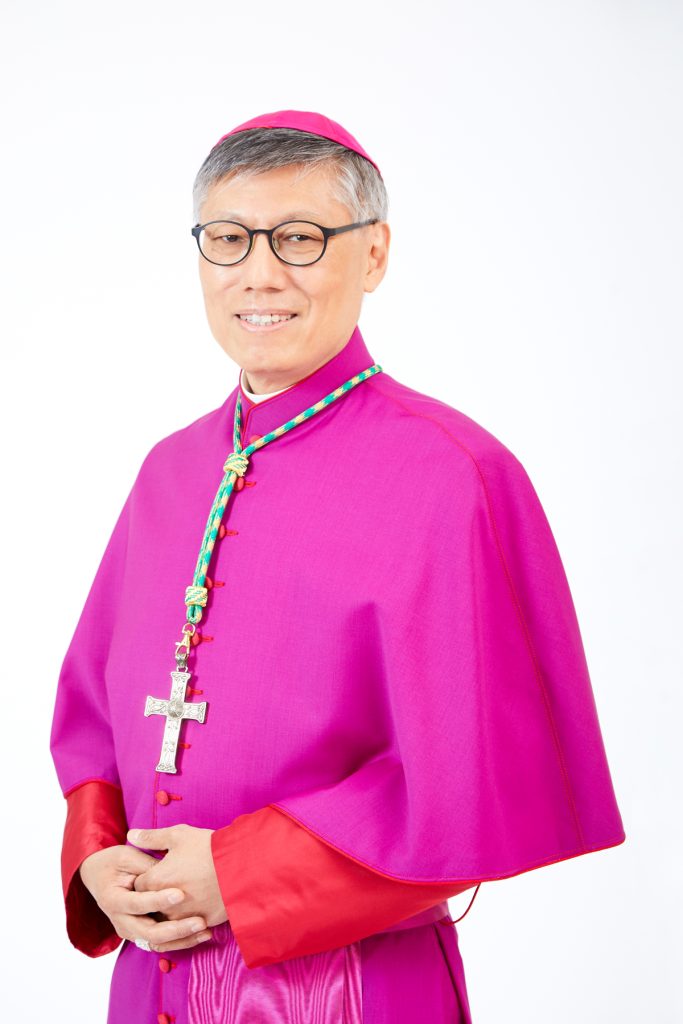
Abstract of the presentation: Education as a Path to Peace, Reconciliation and Resilience: The Role of Schools
What is education for? Is it for economic development and interests of the government or for formation of the person, which incorporates intellectual, physical, psychological, social, and spiritual domains? Formation takes place through schooling which should also be designed for “communal learning.” What should be covered in communal learning through experiences? An essential objective of schooling is for the formation of mutuality and peace-making. It is suggested that positive psychology and growth mindset are the two desirable approaches for the aforesaid formation. Finally, education is a sacred service for the respective schools. But, it should not mainly be about grades and achievements.

His Eminence Dr. Yon Seng Yeath
Venerable. Dr. Yon Seng Yeath has been appointed as a Rector of Preah Sihanouk Raja Buddhist University since 2022. The institution is basically providing an educations for the monastic communities in the country as a whole.
Prior to his engagement in the academic world, he has actively engaged with Dhammayietra (Peace March Movement), founded by Ven. Maha Ghosananda in collaboration with the collective spirits of the Inter-Faiths based communities, working on peace, reconciliation, nonviolence, and post-war traumatized people in Cambodia since 1992.
He currently is serving as the Deputy-President of Monastic Secretariat of Cambodian Sangha Council. And, He was a Post-Doctoral Research Fellow at Harvard University, USA, from 2016 to 2020, conducting a research on: Walking with a Saint: An Introduction to Maha Ghosananda.
Abstract
This abstract examines the transformative power of peace walks as a form of engaged Buddhism and nonviolent activism through the case study of Samdech Preah Maha Ghosananda, the revered Cambodian monk known as the "Gandhi of Cambodia." His Dhammayietra ("Pilgrimage of Truth")—an annual peace march initiated in 1992—served as a spiritual and political intervention to heal a nation shattered by the Khmer Rouge genocide (1975–1979), which decimated Cambodia’s monastic community and cultural foundations.
Ghosananda’s walks, often traversing landmine-ridden territories and former Khmer Rouge strongholds, embodied the Buddhist principles of metta (loving-kindness) and karuṇā (compassion), aiming to reconcile fractured communities. The marches combined ritual chanting, blessings, and grassroots dialogue to address trauma, deforestation, landmines, and political divisions . Key themes include:
1. Healing Through Movement: The Dhammayietra symbolized a literal and metaphorical journey toward collective healing, with each step acting as a meditation on forgiveness. Ghosananda’s mantra—"Each step is a prayer"—reframed walking as a sacred act of presence amid suffering .
2. Engaged Buddhism in Practice: The marches blurred monastic and lay participation, challenging traditional monastic isolation. Ghosananda insisted monks "enter the temples of human suffering," aligning with Thich Nhat Hanh’s concept of engaged Buddhism.
3. Political and Spiritual Resistance: Despite criticism from conservative monks, the Dhammayietra confronted Cambodia’s postwar mindset on how Buddhism should respond to the fragiled society. The 1997 walk through Khmer Rouge-held Pailin, where Ghosananda blessed former perpetrators, epitomized radical reconciliation.
Ghosananda’s legacy underscores the potential of spiritually grounded activism to foster social cohesion. His approach—rooted in Gandhian nonviolence and Buddhist mindfulness—offers a model for post-conflict healing, emphasizing that peace is not a destination but a "step-by-step" process .
Keywords: Engaged Buddhism, Dhammayietra, nonviolent resistance, post-genocide reconciliation, Cambodia.
Sr. Denise Coghlan, RSM
Sister Denise Coghlan is an Australian Sister of Mercy. She spent early years as a founding member of the first high school for girls on the New Guinea mainland. There she witnessed the interaction between Animism and Christianity as the country also reclaimed its independence. After some years in leadership in her Congregation and coordinating the Brisbane Archdiocesan Institute of Adult Faith Education she volunteered for the refugee camps in Thailand with JRS. For the last 36 years she has lived in Cambodia and now serves in the Metta Karuna Reflection Centre in Siem Reap. She is a Board member of the International Campaign to Ban Landmines.
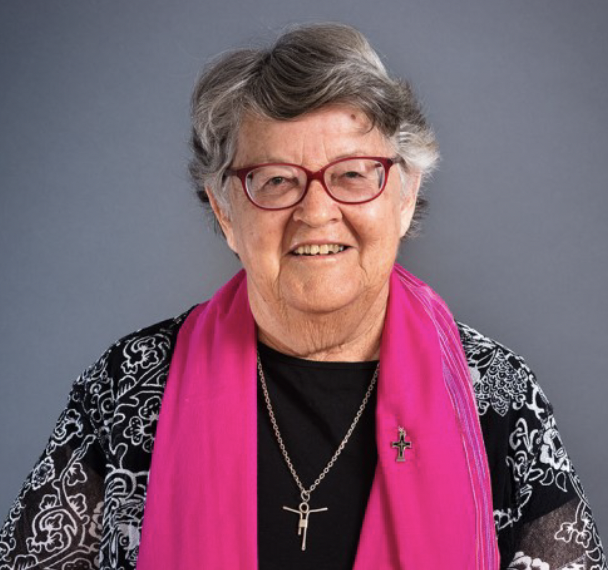
Abstract
Ɓorn in Battambang, Tun Channareth had with his parents moved to Phnom Penh before it was taken over by the Khmer Rouge in 1975. His family was expelled along with the whole population. He was arrested for eating a cassava, then imprisoned, tortured, and threatened with death. He spent years as a slave laborer before eventually escaping to a refugee camp near the Thai border. There he lost both legs to a landmine and was wracked by despair. A decade later with other survivors and national and international friendships traveled extensively in Cambodia and abroad campaigning for a Ban on the production and use of landmines.
Guo Xing Bhikshuni
Ordained by Master Sheng Yen (1931-2009), the founder of Dharma Drum Mountain, Guo Xing Bhikshuni is an assistant professor at the Dharma Drum Institute of Liberal Arts. She holds a Master’s degree in Religion from Columbia University and a Ph.D. in Asian Languages and Cultures from the University of California, Los Angeles.
Her recent research examines how Master Sheng Yen integrated classical teachings and meditation methods from different traditions—including Theravada, Tibetan, Korean, Japanese, and Vietnamese—into practical meditation practices suitable for modern society. She also explores how Master Sheng Yen launched the “Purification of Spiritual Environment Movement,” using Chan teachings to address global issues like ethnic and religious conflicts, poverty, and environmental degradation.
Her recent research examines how Master Sheng Yen integrated classical teachings and meditation methods from different traditions—including Theravada, Tibetan, Korean, Japanese, and Vietnamese—into practical meditation practices suitable for modern society. She also explores how Master Sheng Yen launched the “Purification of Spiritual Environment Movement,” using Chan teachings to address global issues like ethnic and religious conflicts, poverty, and environmental degradation.
He has held numerous academic leadership roles, including Vice President and Dean at Nanhua University, and has served as Director of the Humanistic Buddhism Research Center. Venerable Huei Kai is also Chairman of the Pure Green Foundation and a contributing editor for several academic journals in Buddhist and life education.

Abstract: The Role of Ritual and Spirituality for a Nonviolent Society
Today, our society is rife with different levels of violence that manifest in the family setting, places of business, or in more public settings. This violence can appear in the form of emotional and verbal violence, school bullying, domestic abuse, ethnic conflict, or war. Practicing ritual and spirituality can work to cultivate nonviolence. Rituals provide external reinforcement through symbolic acts, while spirituality fosters internal transformation, enabling individuals to embody compassion and non-harm. This presentation explores the role of ritual and spirituality from a Buddhist perspective. Buddhism is deeply rooted in the principle of nonviolence, and its rituals and spiritual practices reinforce this commitment both on a personal and social level. Buddhist rituals serve as symbolic acts that nurture inner peace, compassion, and ethical conduct, all of which promote nonviolence. Buddhist spiritual teachings emphasize inner transformation through wisdom and compassion. This presentation first illustrates how Buddhist rituals actively cultivate nonviolence, focusing on two specific rituals: repentance and the taking of Bodhisattva precepts. Repentance means recognizing mistakes, accepting responsibility for wrong action, and being resolved to correct them. By engaging in the repentance ritual, individuals develop an internal disposition toward peace, reducing the likelihood of violent behavior. People not only repent for past harm but also commit to a more compassionate life. The ritual of taking the Bodhisattva precepts is a profound commitment in which practitioners formally vow to follow the Bodhisattva path—a path dedicated to achieving enlightenment for the benefit of all sentient beings. This ritual cultivates compassion, ethical behavior, and a deep sense of responsibility toward others. Second, this presentation highlights how Buddhist spirituality, centered on the cultivation of wisdom and compassion, fosters a peaceful and nonviolent society.
Venerable Huei Kai
Venerable Huei Kai is the Deputy Abbot of Fo Guang Shan Monastery and Professor Emeritus at Nanhua University in Taiwan. He received his Ph.D. in Religion from Temple University, Philadelphia, USA, and has long specialized in Buddhist philosophy, Tiantai Buddhism, Confucian thought, and Life-and-Death Studies.
He has held numerous academic leadership roles, including Vice President and Dean at Nanhua University, and has served as Director of the Humanistic Buddhism Research Center. Venerable Huei Kai is also Chairman of the Pure Green Foundation and a contributing editor for several academic journals in Buddhist and life education.
He has held numerous academic leadership roles, including Vice President and Dean at Nanhua University, and has served as Director of the Humanistic Buddhism Research Center. Venerable Huei Kai is also Chairman of the Pure Green Foundation and a contributing editor for several academic journals in Buddhist and life education.
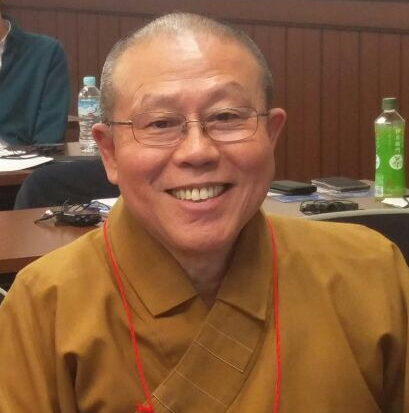
Abstract
The Mahayana sutras, as rich reservoirs of spiritual insight, offer profound teachings on cultivating peace, fostering reconciliation, and developing inner resilience. This presentation explores how these three themes interweave within core Mahayana texts such as the Lotus Sutra, Vimalakirti Sutra, and Avatamsaka Sutra. Peace is not merely understood as the absence of conflict, but as a dynamic expression of compassion (karuṇā) and wisdom (prajñā) grounded in the realization of emptiness (śūnyatā). Reconciliation emerges not only between beings but also within the self, through the transformation of suffering and duality into the path of awakening. Resilience is revealed in the bodhisattva’s unwavering vow to liberate all beings amid adversity and samsaric cycles.
Drawing on scriptural passages, this talk will highlight the narrative and doctrinal strategies that promote healing and cohesion in both personal and collective dimensions. It also reflects on how these teachings provide spiritual resources to respond to contemporary challenges—be it social division, ecological crises, or trauma—through an ethic of interdependence and inner stability. The Mahayana path, as a vision of boundless compassion and wisdom, offers not only transcendence but a blueprint for engaged, peaceful co-existence.
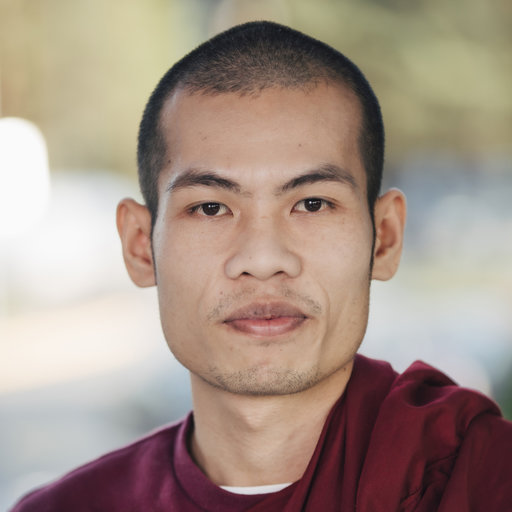
Ven. Dr. San Pisith
Ven. Dr. San Pisith currently serves as the Head of Research for Postgraduate Studies at Preah Sihanouk Raja Buddhist University. He received his Doctoral degree from TalTech–Tallinn University of Technology in Estonia, European Union, his Master’s degree from the International Buddhist College in Thailand (2018), and his Bachelor’s degree from the International Theravāda Buddhist Missionary University in Myanmar (2016).
He has previous experience working with Buddhism for Development, a non-governmental organization in Cambodia, and has also served as a lecturer at Preah Sihanoukraja Buddhist University in Cambodia. He was a Core Member of Cosmolocalism, a research project funded by the European Research Council under the European Union’s Horizon 2020 research and innovation programme (Grant Agreement No. 802512), and was also an Early Stage Research Fellow at the Ragnar Nurkse Department of Innovation and Governance, Estonia.
His primary research interests include Buddhist Economics and Buddhist Governance, Non-Western Public Administration, and the theory of Commons.
Abstract—Peace, Reconciliation & Resilience in the Pali Tipitaka
In this presentation, Venerable Dr. Pisith San explores the themes of peace, reconciliation, and resilience as found in the Pali Tipiṭaka, the foundational scripture of Theravāda Buddhism. Drawing from the Vinaya, Sutta, and Abhidhamma texts, he highlights how the early Buddhist community, especially the Saṅgha, embodied principles of unity, mutual respect, and spiritual inclusivity.
He reflects on how the Buddha welcomed people from all backgrounds, even those once considered unfortunate, and built a diverse Saṅgha governed not by hierarchy but by Dhamma and Vinaya. The Buddha’s emphasis on communal harmony, as seen in teachings such as Dhammapada verse 194 and the Pahārāda Sutta, illustrates a model of spiritual unity amid diversity.
The presentation also examines Buddhist approaches to resolving conflict, including the “seven methods of settling disputes” found in the Sāmagāma Sutta, and historical examples such as the Buddha mediating between the Kosambī monks and the Sakyan-Koliyan water dispute. While acknowledging that not all conflicts can be resolved, Venerable Dr. San stresses humility, truthfulness, and ethical discipline as essential paths to reconciliation.
Finally, he emphasizes the importance of resilience through forgiveness (Abhayadāna), compassion (Karunā), and the framework of the Four Noble Truths. These, he argues, are vital for healing and sustaining peace in post-conflict societies.
Rev. Dr. Leo Lefebure
Leo D. Lefebure is priest of the Archdiocese of Chicago in the United States and a professor of theology and the inaugural holder of the Matteo Ricci, S.J., Chair at Georgetown University in Washington, DC. He is the author of the award-winning Transforming Interreligious Relations: Catholic Responses to Religious Pluralism in the United States. His other award-winning books include Revelation, the Religions, and Violence; True and Holy: Christian Scripture and Other Religions; and The Path of Wisdom: A Christian Commentary on the Dhammapada, coauthored with Peter Feldmeier. Lefebure is the president of the American Theological Society, co-chair of the Interfaith Coalition Conference for Global Citizens, a former president of the Society for Buddhist-Christian Studies, a research fellow of the Chinese University of Hong Kong, and a trustee emeritus of the Parliament of the World’s Religions.
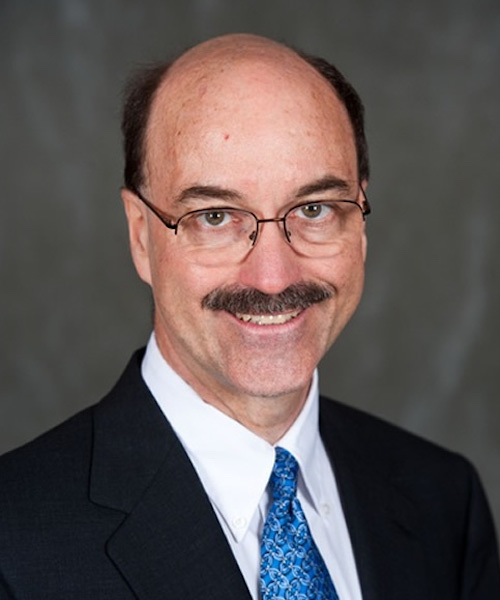
Abstract
Augustine of Hippo interpreted biblical peace as the tranquility of order, in Latin tranquillitas ordinis. In his monumental work, The City of God against the Pagans, he explained: “The peace of all things lies in the tranquility of order, and order is the disposition of equal and unequal things in such a way as to give to each its proper place.” Because of the goodness of creation, Augustine trusted that peace is in some way always present as a gift from God, even in situations of conflict. Christians look to the reconciliation effected by God in Jesus Christ as the ground for our confidence in this practice (e.g., Col 1). Reconciliation, then, is not a process that we initiate or achieve. We discover it already active in God through Christ. The Latin word resiliens means “to jump, leap or bounce back.” There is a physiological dimension to resilience, as in the case of muscles becoming stronger after being stressed; there is a cognitive and psychosocial dimension, as people can develop new insights and coping skills in time of stress and come through with greater resources than before. Finally, there is a spiritual dimension that invites exploration, as people can become more mature, more insightful, and more understanding of others. Craig Titus summarizes the outcome: “doing well in adversity.” A Catholic law professor at Harvard University, Robert Bordone, proposes practical strategies for developing conflict resilience to realize the call of Pope Francis to shape a culture of encounter.
Archbishop Marco Tin Win
Archbishop Marco Tin Win, born in 1960 in Sagaing Division, Myanmar, was ordained a priest in 1987 and became the Archbishop of Mandalay in 2019.
He holds a Ph.D. in Philosophy from the Pontifical Urbaniana University in Rome. With decades of experience in seminary formation, parish ministry, and interreligious dialogue, he currently serves as President of the Episcopal Commission for Interreligious Dialogue in Myanmar and has published 10 books in Burmese.
Venerable Ashin Nandarsara
Venerable Ashin Nandarsara is a senior Burmese Buddhist monk renowned for his scholarly and meditative contributions. Ordained in 1976, he holds several prestigious Dhamma titles and international doctoral degrees, including Ph.D. in Meditation and Literature. He currently teaches Abhidhamma at the State Pariyatti Sasana University in Mandalay and guides over 500 participants annually in Vipassana meditation retreats at Atulagonyi Monastery.
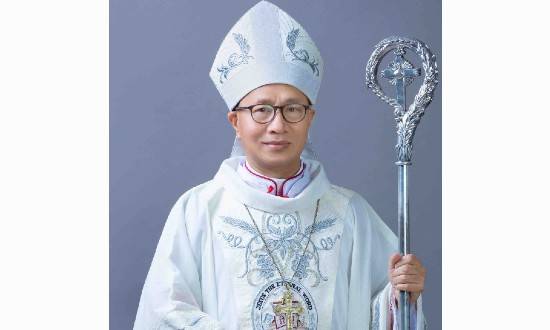
Abstract of Presentation
Archbishop Marco Tin Win and Venerable Ashin Nandarsara will share insights into the suffering and resilience of the Myanmar people amidst ongoing conflict since the 2021 military coup. Drawing from Buddhist and Christian traditions, they will highlight faith-based responses—such as prayer, interreligious collaboration, and forgiveness—that foster peace, reconciliation, and spiritual healing across divided communities.
Short Biographies of Vietnamese Delegates
1. H.E. Bishop Joseph Chau Ngoc Tri
Born in 1956, Bishop Tri was ordained a priest in 1989 and later pursued pastoral studies in France. Appointed Bishop of Da Nang in 2006 and Bishop of Lang Son-Cao Bang in 2016, he currently serves as President of the Interreligious Dialogue and Ecumenism Commission of the Vietnamese Bishops’ Conference. He previously chaired the Commission for Marriage and Family for over a decade.
2. Rev. Fr. Francis Xavier Bao Loc
Born in 1961 and ordained in 1992, Fr. Bao Loc is a diocesan priest of the Archdiocese of Ho Chi Minh City. He specializes in Theology of Religions and holds a master’s degree from the Catholic Institute of Toulouse. He has taught extensively in theological and pastoral institutes and currently serves as Rector of the Pastoral Center in Ho Chi Minh City. He is also Secretary of the Interreligious Relations Office of the Vietnamese Bishops’ Conference.
3. Bhikkhuni Thích Tịnh Nguyệt (Ven. Tinh Nguyet)
Born in 1981, she became a bhikkhuni in 2021. She holds two master’s degrees—one in Buddhist Studies from the Institute of Buddhism in Hanoi, and another in Social Sciences and Humanities. She is affiliated with Bo De Pagoda in Hanoi.
Abstract: Regional Narratives of Peace, Reconciliation, and Resilience in Vietnam
The joint presentation highlights symbolic moments of reconciliation, such as the handshake between former American and Vietnamese veterans on the 50th anniversary of the war’s end (1975–2025). It reflects on interfaith cooperation, including a message from Most Venerable Thích Trí Quảng advocating closer relations between Buddhist and Catholic communities. The presentation showcases practical examples, like joint Buddhist-Catholic care for families of AIDS patients in Huế, as signs of a growing spirit of peace and resilience through interreligious solidarity
Bio (3 Korean Delegates)
Reverand Deoksang (secular name: Seong-Hun Jo), PhD, is an ordained Won Buddhist minister and research professor at the Institute of Mind Humanities, Wonkwang University, South Korea. Beside teaching and research, he explores how meditation and mind study cultivate gong-ik-sim (公益心)—the Won Buddhist ideal of a public-spirited mind devoted to the common good, known in everyday language as the spirit of a global citizen. He serves on the Interfaith Dialogue Committee of the Korean Conference of Religions for Peace and previously guided meditation classes and retreats at the Won Dharma Meditation Center in New York, USA. He hopes to learn and share ways of serving the common good with friends from many spiritual traditions.
Venerable Junehan (secular name: Chang, Jungyoon) was ordained in 2006 at Sudeoksa Monastery and completed his monastic education at the Haeinsa Buddhist College and Vinaya Institute. Now serving as a professor for the Bhikkhu Precepts under the Jogye Order’s Ordination Committee. Through a 1,000-day solitary retreat in a cave on Mount Sobaek and an 18-month pilgrimage across the Himalayas, he has deeply explored the essence of Buddhist practice. In 2022, he founded Y.B Zen Monastery on Mount Sobaek and JustBe Meditation Center in Seoul. Now currently serves as Secretary General of the Jogye Order’s International Dharma Propagation Group, and Dharma Teacher to both the Korean National Assembly Buddhist Association and the Buddhist Journalists’ Association.
Reverand Fr. Jaechan Anselmo Park, OSB has been a member of St. Benedict Waegwan Abbey in South Korea since 1991. After his ordination to the priesthood in 2001, he was vocation director and directed the Monastic Experience programs. He also worked as Secretary General of Korean Conference of Major Superiors of Men’s Religious Institutes and Societies of Apostolic Life. He received his S.T.D. and Th.D. from Regis College of the University of Toronto, Canada. Presently, he engages in Dialogue Interreligieux Monastique/ Monastic Interreligious Dialogue (DIMMID) as a President, in Committee for Promoting Christian Unity & Interreligious Dialogue of Catholic Bishop’s Conference of Korea, and in Commission on Faith and Order of Korean Churches.
He was created Cardinal in 2023, and was then appointed to the Dicastery for Interreligious Dialogue. He was named as a member of the Pontifical Academy of Social Sciences in 2024.
Abstract
This presentation explores how Korea’s Buddhist, Won Buddhist, and Christian communities have responded to the nation's historical and ongoing challenges of division and conflict. Emphasizing the importance of inner peace as the foundation for lasting social harmony, it highlights interreligious efforts toward peacebuilding, reconciliation, and social justice. Key areas include interreligious dialogue, humanitarian cooperation, and peace education. The presentation calls for continued collaboration to foster spiritual transformation and resilience, promoting a shared vision of a peaceful Korean Peninsula.
Venerable Sik Hin Hung
Venerable Sik Hin Hung was born in Hong Kong and attended La Salle Primary School during his early years. For his secondary education, he moved to Japan and graduated from the Canadian Academy in Kobe. In 1976, he earned a double major in International Business and Computer Science from the University of Oregon in the United States. Upon returning to Hong Kong, he joined his father’s business and worked in the financial sector. In 1990, he made a profound decision to dedicate his life to the study and promotion of Buddhist teachings and practices. He was ordained as a Mahayana Buddhist monk under the guidance of Grand Master Venerable Sheng Yi. In 1993, he pursued further studies in London, obtaining a Master’s degree in Religious Studies from SOAS, University of London.
Venerable Sik Hin Hung is one of the Founding Fellows of the Centre of Buddhist Studies at the University of Hong Kong, where he served as Centre Director for nearly a decade. He currently holds the position of Senior Fellow at the Centre and is the Chairman of the Postgraduate Diploma in Professional Practice of Buddhist Counselling. Additionally, he serves as the Managing Vice-President and Administrator-General of the Hong Kong Buddhist Association. For many years, he provided counselling services to staff members of the Hong Kong Hospital Authority, offering support and guidance rooted in Buddhist principles.
Specializing in Buddhist counselling and meditation, Venerable Sik Hin Hung has played a pivotal role in making Buddhist teachings more accessible and relevant to contemporary society. His current research projects include Buddhist counselling, the neuroscience of meditation, and the study of Guangdong Yuqie Yankou. He has authored numerous books and journal articles on topics such as Buddhist counselling, psychotherapy, Buddhist teachings, and education. In 2024, he was awarded the Medal of Honour in recognition of his exceptional contributions to the community, particularly in advancing the research and development of Buddhist studies.
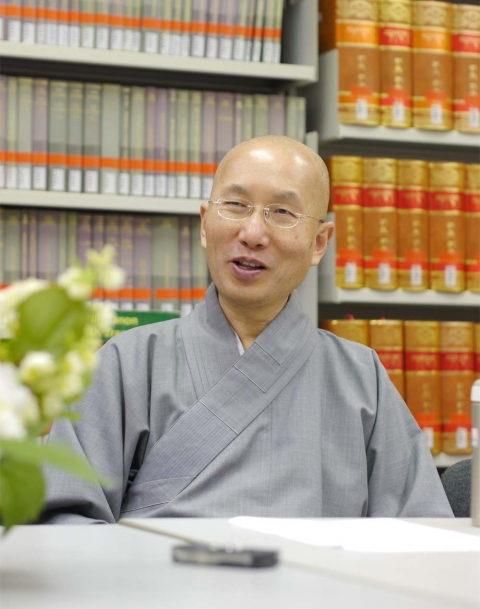
Buddhist Concept of Peace through Reconciliation and Resilience
The quest for peace—freedom from suffering—is a universal aspiration shared by all sentient beings. Yet, suffering persists. How can we reconcile with this reality and live harmoniously within it? In this talk, I will explore the Buddhist perspective on reconciliation and resilience as pathways to peace. Specifically, I will examine how the Buddha’s teachings guide us to reconcile with external causes of suffering—such as karma and the impermanent nature of existence—and internal causes, rooted in ignorance and attachment. This journey of reconciliation requires sustained effort, mindfulness, and resilience, often cultivated through practices like loving-kindness meditation. By embracing these qualities, we can transform suffering into a deeper understanding of inner peace and compassionate interconnectedness with others.
Rev. Fr. Peter Zhang Siqian, C.D.D.
Date of Birth: 20 December 1971 (China)
• Missionary in Singapore: Since 1996
• Religions Order: Congregation of the Disciples of the Lord (CDD)
• Priesthood Ordination: 26 October 2003 (Holy Spirit Church, Singapore)
Educational background
• Bachelor of Science in Civil Engineering (1991-1996, China)
• Bachelor of Sacred Theology (1997-2002, Singapore)
• Licentiate and Doctorate in Moral Theology (2006-2011, Italy)
Current Service
• Vicar General, Roman Catholic Archdiocese of Singapore
• Supervisor of Archdiocesan Interreligious Dialogue and Ecumenism Centre of Singapore (AIRDECS)
• Lecturer at Catholic Theological Institute of Singapore (CTIS) and at St Francis Xavior Major Seminary
• Spiritual Director of the Catholic Spirituality Centre (CSC), Singapore
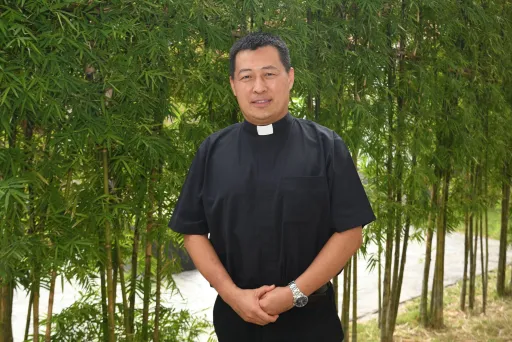
Abstract
This article presents a Catholic reflection on three foundational themes in the Old Testament—peace, reconciliation, and resilience—as essential elements of God's covenantal relationship with His people. Drawing from scriptural narratives and theological insights, Msgr. Peter Zhang highlights how peace (shalom) is more than the absence of conflict; it signifies a holistic harmony with God, others, and creation, and is both a divine gift and the fruit of obedience to God's will. Reconciliation is portrayed as the restoration of broken relationships, both vertically with God and horizontally among human beings, grounded in God's mercy. Resilience, in turn, is shown as the steadfast faith and hope maintained through trials and suffering, relying on God’s promises and strength rather than human effort alone. The article invites readers to live them out through faith, forgiveness, and trust in God's enduring love and guidance.
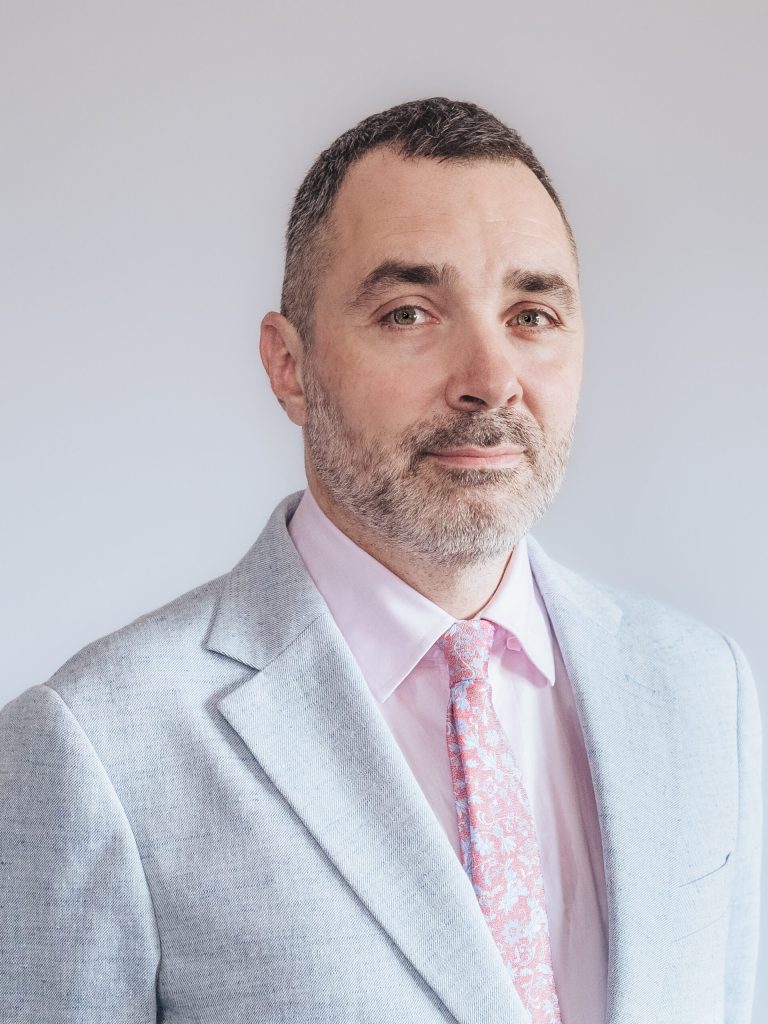
Dr. Thomas Cattoi
Thomas Cattoi is currently William and Barbara Moran Chair in Early Christian Theology and Interreligious Dialogue at the Pontifical University of Saint Thomas Aquinas (Angelicum) in Rome. between 2006 and 2024, he taught at the Jesuit School of Theology at Santa Clara University and the Graduate Theological Union in Berkeley, California. His research and teaching focus on the theology and spirituality of the early Christian East and on Buddhist-Christian dialogue, with particular attention to the Tibetan tradition. He has been co-editor of the journal Buddhist-Christian Studies since 2015, and in 2022 he coedited the Routledge Handbook of Buddhist-Christian Studies. His forthcoming monograph is Seeking Wisdom, Embracing Compassion: A Philokalic Commentary to Tsong kha pa’s Great Treatise (Brill, 2025).
Abstract
The purpose of this paper is to reflect on the passage in the Gospel of John 15, 1-4 where Jesus presents himself as the true vine and his disciples as the branches, who are invited to remain (menein) in his love. Recovering the Christological and cosmological vision of some church Fathers such as Athanasios of Alexandria and Maximos, the paper will outline the significance of this image for a Christian theology of peace and reconciliation. The paper will also invite a comparative reflection, recovering the Theravada origins of the notion of bodhisattva and the centrality of compassion in a Buddhist understanding of reconciliation.
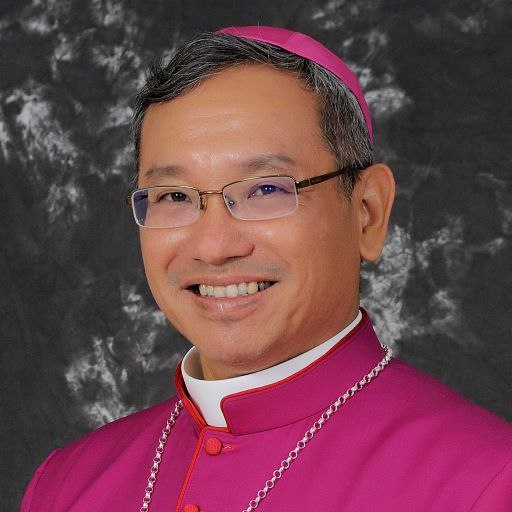
Archbishop Dr. Simon Poh
Archbishop of Kuching, Sarawak, Malaysia
Archbishop Simon Poh was ordained a priest in 1988. He holds a Licentiate in Missiology from Rome (1996) and a Doctorate in Ministry from the Graduate Theological Foundation, South Bend (2017). He was appointed Auxiliary Bishop in 2015 and has served as Archbishop of Kuching since 2017. In addition to his pastoral responsibilities, he lectures at St. Peter’s College Theological Seminary in Kuching. Archbishop Poh is President of the Malaysian Catholic Bishops’ Conference and a bishop-member of the FABC Office of Ecumenical and Interreligious Affairs (OEIA).
Abstract
St. Francis of Assisi: Integral Advocacy for Peace, Reconciliation and Resilience
This presentation explores the life and spiritual legacy of St. Francis of Assisi (1182–1226), whose radical detachment from worldly possessions and deep compassion for the poor reflect a life lived in harmony with God’s creation and all beings. Drawing parallels between the teachings of St. Francis and the spiritual insights of the Buddha—particularly the call to cultivate good, refrain from evil, and purify the heart—the session reflects on how Franciscan spirituality informs Pope Francis’ encyclical on care for our common home and human fraternity. It also highlights interreligious collaboration in Malaysia, where Christians and Buddhists work together to promote peace, reconciliation, and resilience in a diverse society.
The role of Buddhist and Christian doctrines for peace, reconciliation, and resilience in Sri Lanka
Joint presentation by:
Ven. Sooriyawewa Sumedha Thero
H.E. Bishop Jude Nishanta Silva
Rev. Fr. Alex Nilantha
Archbishop Simon Poh was ordained a priest in 1988. He holds a Licentiate in Missiology from Rome (1996) and a Doctorate in Ministry from the Graduate Theological Foundation, South Bend (2017). He was appointed Auxiliary Bishop in 2015 and has served as Archbishop of Kuching since 2017. In addition to his pastoral responsibilities, he lectures at St. Peter’s College Theological Seminary in Kuching. Archbishop Poh is President of the Malaysian Catholic Bishops’ Conference and a bishop-member of the FABC Office of Ecumenical and Interreligious Affairs (OEIA).
There has been considerable discussion on the role of Buddhism and Christianity in promoting peace and reconciliation in Sri Lanka. The contribution of these two religions to building a truly peaceful Sri Lanka in the post-war period should be appreciated. Despite the existence of different religious identities, it is clear that Buddhist and Christian religions and their leaders have made significant efforts to foster social harmony and peace. To improve this process, we can make our suggestions under four main areas.
Educational Perspective
- Introducing practical teaching methods in schools aimed at achieving the educational goals of the new era by incorporating proper sources from Buddhist and Christian doctrines that emphasize non-violence, compassion, love, kindness, respect for others, and peace.
- Promoting advanced research conducted by academic institutions on topics such as peace and conflict resolution to the wider society.
Religious Perspectives
Religious Perspectives
Interfaith philosophical exchange between Christianity and Buddhism. (Exchange of fundamental religious theories between followers)
- Teachings on compassion, kindness, loving-kindness, and non-violence
- Through sermons and teachings conducted by churches and temples
Teachings related to peace
Political Perspective
- Acting together in times of social and political conflicts or crises
- Sharing peace and love among one another during natural disasters and emergencies
Cultural Perspectives
- Encouraging public cultural engagement in key religious festivals
- Presenting songs, literature, and audiovisual productions to convey the message of peace common to both religions
Key words : peace, reconciliation, resilience, Buddhist, Christian
Dr. Angeliki Ziaka
Dr. Angeliki Ziaka, a Professor at the School of Theology of the Aristotle University of Thessaloniki, holds a PhD in the History of Religions from the Catholic Faculty of the University of Strasbourg. From September 2024 she is appointed by World Council of Churches (WCC) as the Programme Executive for Interreligious Dialogue and Cooperation.
Interfaith engagement has been one of her main preoccupations, leading local and global initiatives such as joint educational programs involving Christian and Muslim theologians for the promotion of intercultural and interreligious understanding and cooperation. Her scholarly contributions include several edited volumes, published books and articles in her field, the Study of Religions and Interreligious Dialogue.
Prof. Ziaka was a LUCIS Fellow (Leiden University Centre for the Study of Islam and Society-2014) and a Fellow of the Middle East Institute at Columbia University in the city of New York (2017).
Her main areas of academic specialization and teaching include early and medieval Islamic Kalam, Shi’a and Ibadhi Islam; Byzantine and post-Byzantine literature on Islam; religious historical narratives and religious discourse and the impact of political realities in the Middle East and the Balkans on the re-articulation of Muslim identities; interreligious dialogue and Religious Education as a school subject in religious and secular environments and institutions as well as Asian Religions.
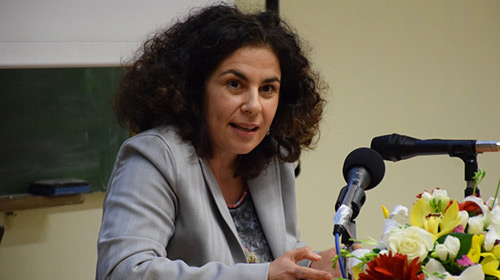
Abstract
In her moving reflection for the 8th Christian–Buddhist Colloquium, Prof. Ziaka draws on the 2024 Vesak Message and stories from both Christian and Buddhist traditions to highlight the spiritual transformation that arises from suffering. Referencing the story of Kisa Gotami and voices such as Pope Francis, Desmond Tutu, and Maha Ghosananda, she emphasizes reconciliation and resilience as essential paths toward lasting peace. Her message is a heartfelt call to walk together—Christians, Buddhists, and all people of faith—with compassion, courage, and a deep commitment to healing a wounded world.
H.E. Monsignor Enrique Figaredo, S.J.
H.E. Msgr. Enrique Figaredo, S.J., has served as the Apostolic Prefect of Battambang, Cambodia, since 2000. A Spanish Jesuit, he holds a Master’s degree in Economics, specializing in International Development (Complutense University of Madrid), and a Licentiate in Theology (S.T.L.) with a specialization in Social Ethics (Comillas Pontifical University).
Since the mid-1980s, he has dedicated himself to accompanying and advocating for refugees and people with disabilities, particularly war victims, in the Thai-Cambodian border camps and inside Cambodia. He played a key role in developing rehabilitation and vocational training programs, including the founding of Banteay Prieb, a center for persons with disabilities. Following his appointment as Apostolic Prefect, Monsignor Figaredo has continued his dual mission: building up the local Catholic Church through pastoral care and spiritual leadership, while remaining deeply committed to promoting the rights, dignity, and empowerment of persons with disabilities and the poor. He is also the founder and president of the Karuna Battambang Organization (KBO), and since 2006, he has served as Chairman of Caritas Cambodia.
Widely recognized for his humanitarian contributions, Monsignor Figaredo has received numerous honors, including the Royal Order of Sahametrei from the Cambodian government, and was named an Honorary Ambassador of Marca España in the field of social action.
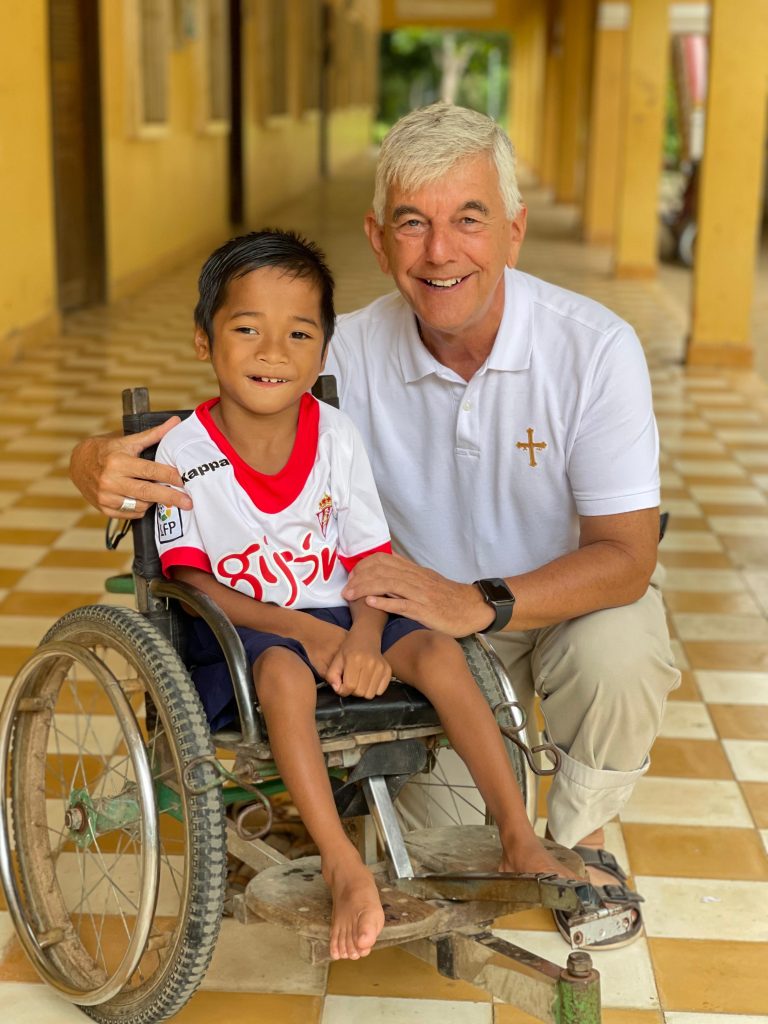
Abstract – Guided Catholic Meditation Session
As part of the interreligious meditation session on the first afternoon of the Colloquium, H.H. Monsignor Enrique Figaredo, S.J., will offer a brief 10-minute introduction to Christian meditation, following the Ignatian way of reflection and contemplation. Drawing from the rich tradition of St. Ignatius of Loyola, this meditative moment will invite participants to gently reflect on their personal experiences, to become aware of the inner movements of the heart, and to contemplate the divine presence in everyday life. The session aims to foster interior peace, spiritual attentiveness, and a spirit of compassion across faith traditions.

Venerable Hun Khamra (Bhikkhu Kassapa)
Venerable Hun Khamra (Bhikkhu Kassapa) is the Director and Co-founder of the International Cambodian Buddhist Centre and the David Rodrigo Child Development Centre for Special Needs Children in Sri Lanka. He currently serves as Vice President of the Vipassana Dhura Buddhist Centre of Cambodia and President of its Kep Province branch. He is also a lecturer in Buddhist Psychology and Buddhist Psychotherapy at Sihanoukraja Buddhist University. He holds a B.A. in Psychology from the University of Peradeniya and an M.A. with highest distinction from the Pali and Buddhist University of Sri Lanka. He is pursuing his Ph.D. at the University of Sri Jayewardenepura. His scholarly and practical work explores the intersection of Buddhist thought and mental health.
Abstract – Guided Buddhist Meditation Session
On the second afternoon of the Colloquium, Venerable Hun Khamra will lead a guided meditation session based on the Samatha-Vipassana tradition. Drawing on his experience as a teacher and co-translator of key meditation texts, he will offer practical instructions that integrate classical Buddhist techniques with psychological insights, providing participants with an experiential understanding of inner peace, mindfulness, and mental clarity.
Fr. Dr.Mark Lopez, S.J.
Fr. Mark is a Filipino Jesuit who has worked in Cambodia since 2009. He holds a Doctoral Degree in Educational Leadership for Social Justice from the Loyola Marymount University in Los Angeles, California, and a Masters Degree in Theological Studies from the Ateneo de Manila University in the Philippines. He has published research on Social Justice issues, Moral Theology, and reflections on the parallels of Ignatian Spirituality and Buddhism.
Formerly the Parish Priest for Catholic Communities in Kampong Thom Province, Care for Creation Advocacy Desk Co-Chair, and Vicar Delegate for the Apostolic Prefecture of Battambang, he now works full-time as the National Director of Fe y Alegria (FyA) Cambodia (the Jesuit apostolate that helps to improve the quality of education in marginalized public school communities in Northwestern Cambodia.) He is also currently academic Supervisor of Xavier Jesuit School in Svay Sisophon. Whenever possible, he continues to direct Ignatian retreats for various groups of Catholic religious and lay volunteers, and most recently, was able to incorporate meditation exercises in the Teacher’s retreat for partner public schools of FyA.
Fr. Mark was first drawn to various practices of meditation by the writings of the late Anthony De Melo, SJ, who married several Eastern meditation practices with Christian prayer. Later on, as a Jesuit scholastic, he had the opportunity to undergo some training in Vipassana Meditation under the Venerable Abbot Piyatassi Bhikku for the East Asian Theological Encounter Program in Chiang Mai, Thailand. Fr. Mark is thankful for having known and practiced all these various forms of meditation which have deeply enriched his life of prayer and praxis as a Jesuit, priest, missionary, and educator.
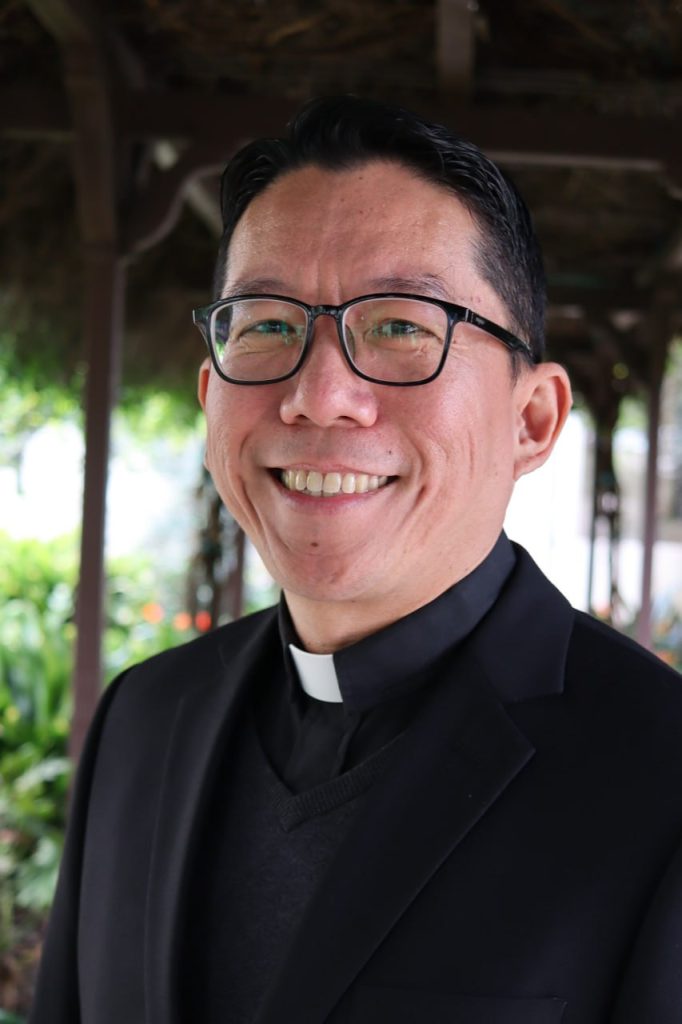
Abstract – Guided Christian Meditation Session
For the Colloquium, he will be leading the group in a 10-minute guided meditation known in the Catholic Ignatian tradition as the “Examen”. This meditation, promoted by St. Ignatius of Loyola (founder of the Jesuit Order of priests and brothers) is used in the daily practice of discerning God’s presence and will in our lives, and brings together a mindfulness of our need to give thanks, to seek forgiveness, divine wisdom, guidance, and blessing in all that we do.
Most Venerable Dr. Ananthasak Phathasira (Nanthivaṭṭhano Bhikkhu)
Most Venerable Dr. Ananthasak Phathasira is a leading Lao Buddhist monk and educator. He serves as Chief Abbot of Pa Nong Boua Thong Tai Monastery and is a member of the Committee for Sangha Education of the Central Buddhist Fellowship Organization of the Lao PDR. He is also Deputy Head of the Department of Foreign Languages and ICT at Ongteu Sangha Teachers’ Training College, where he has taught Computer, ICT, Dhamma, and Vināya since 2014. He holds a PhD in Buddhist Educational Administration, alongside degrees in Computer Engineering, Educational Administration, and Buddhist Philosophy.

Abstract – Meditative Concentration (Bhāvanā)
On Tuesday, May 27, 2025, during the session “Reading Scriptures and Meditation,” Most Venerable Dr. Ananthasak Phathasira will lead a meditation on the core Buddhist practice of Bhāvanā or meditative concentration. This practice, central to the Fourth Noble Truth—the Path to the Cessation of Suffering—guides individuals to transcend suffering and realize inner peace. Drawing from the Mahāsatipaṭṭhāna Sutta, participants will explore the “one-way path” (ekāyano maggo) through mindfulness of body, feelings, mind, and mental objects. This practice, universally applicable across traditions and cultures, offers a powerful tool for reconciliation, resilience, and the pursuit of peace.
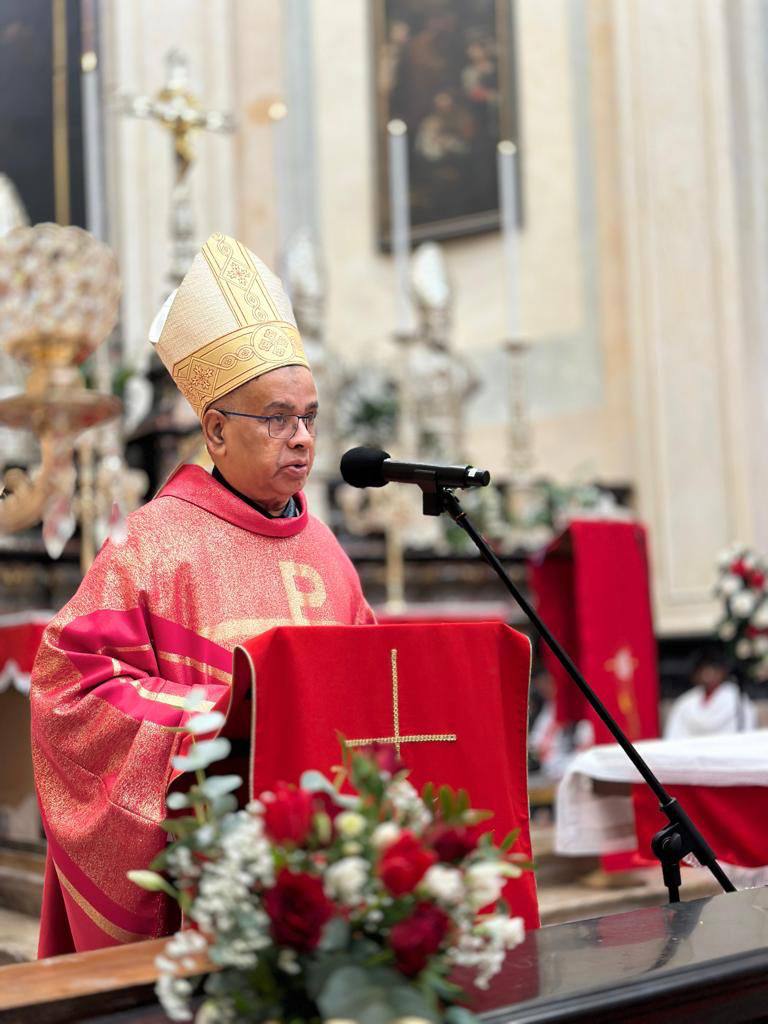
H.E. Bishop Norbert M. Andradi, O.M.I.
Bishop of Anuradhapura, Sri Lanka
Born on August 30, 1949, Bishop Don Norbert M. Andradi is the second of five sons in his family. He studied at Holy Cross College, Kalutara, and entered the Congregation of the Missionary Oblates of Mary Immaculate, making his first religious profession. He later earned a Licentiate in Theology, specializing in Fundamental Theology, from the Pontifical Gregorian University in Rome. He is currently serving as the Bishop of Anuradhapura, Sri Lanka, where he continues to carry out his pastoral ministry with deep commitment and zeal for the spiritual and social well-being of his people.
Abstract
Bishop Andradi will present a 10-minute synthesis of the Colloquium’s discussions during the final session. Drawing on the presentations and exchanges of the two-day academic program, his concluding remarks will highlight the key themes, shared insights, and common aspirations emerging from this Buddhist-Christian dialogue on peace through reconciliation and resilience.
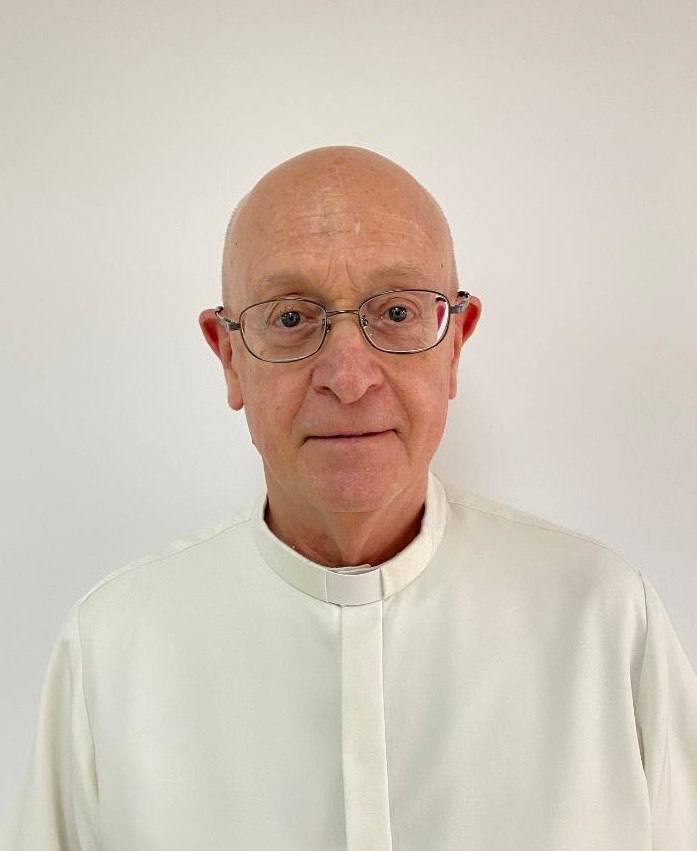
Rev. Fr. William LaRousse, MM
Rev. Fr. William LaRousse is a Maryknoll missionary priest from New York and currently serves as the Assistant Secretary General of the Federation of Asian Bishops’ Conferences (FABC). He has worked in Asia since 1977, primarily in the Philippines. From 2009 to 2018, he served as Secretary of the FABC Office of Ecumenical and Interreligious Affairs (OEIA). In 2018, he joined the FABC Central Secretariat, first based in Hong Kong and now in Bangkok, Thailand, where he continues to support interreligious and ecumenical dialogue efforts across Asia.
Abstract – Reading of the Final Statement
At the concluding session of the 8th Buddhist-Christian Colloquium, Fr. William LaRousse will read the Final Statement, a collective expression of the insights, reflections, and shared commitments shaped during the course of the event. This brief but significant moment will serve to formally conclude the colloquium, articulating the participants’ unified dedication to peace, reconciliation, and resilience in their respective contexts.
Msgr. Indunil J. Kodithuwakku K
H.E. Monsignor Indunil Janakaratne Kodithuwakku Kankanamalage is the Secretary of the Dicastery for Interreligious Dialogue at the Vatican. Originally from Sri Lanka, he has long been engaged in fostering interfaith understanding and cooperation both in academic and ecclesial settings. Before his appointment as Secretary, he served as Under-Secretary of the same Dicastery and held academic positions in theology and interreligious dialogue. Monsignor Indunil has represented the Holy See in numerous international forums and dialogues, promoting mutual respect and peaceful coexistence among religious traditions.
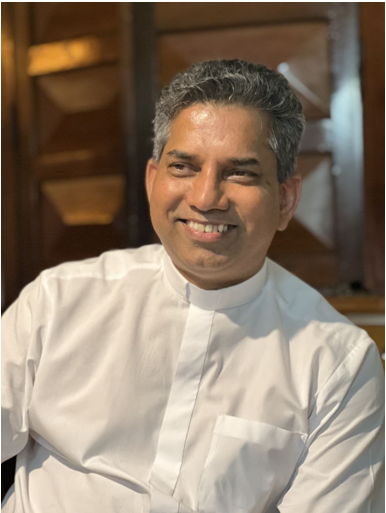
Abstract
This keynote address explores the contextual meaning of the theme “Buddhists and Christians Working Together for Peace Through Reconciliation and Resilience” in light of Asia’s painful history of conflict and the healing potential of interreligious cooperation. Drawing on personal experiences from Sri Lanka, historical memory, and spiritual resources, it highlights how peace requires both addressing the root causes of violence—such as injustice, marginalization, and identity politics—and nurturing the spiritual strength for forgiveness and healing. The talk affirms that while religion has sometimes been misused to fuel conflict, it can also be a profound force for reconciliation. By walking together, Buddhists and Christians can respond to the world’s wounds with compassion, nonviolence, and hope.
Rev. Fr. Paulin Batairwa Kubuya, SX
Rev. Fr. Paulin Batairwa Kubuya is a Xaverian missionary priest from the Democratic Republic of the Congo (DRC), deeply committed to fostering interreligious dialogue. Over the years, he has served in various Asian contexts—including the Philippines, China, and Taiwan—where he lived and actively promoted mutual understanding among different religious communities through academic teaching, pastoral engagement, and grassroots dialogue. His extensive missionary experience has shaped a profound intercultural perspective. Currently, he serves as the Under-Secretary of the Dicastery for Interreligious Dialogue at the Vatican, where he contributes to global efforts in promoting respectful and constructive relationships between people of diverse faiths.

Abstract – Vote of Thanks
At the concluding session of the 8th Buddhist-Christian Colloquium, Rev. Fr. Paulin Batairwa Kubuya will deliver the Vote of Thanks on behalf of the Vatican. Drawing on his extensive missionary and interreligious experience across Asia and his current role at the Holy See, Fr. Paulin will express gratitude to all participants, organizers, and collaborators who contributed to the success of the Colloquium. His closing words will highlight the shared spirit of dialogue and collaboration that has marked this gathering, reaffirming the Vatican’s ongoing commitment to fostering peace through interreligious understanding and cooperation.
Ven. Elayapattuwe Nagithawansha Thero
Ven. Elayapattuwe Nagithawansha Thero is the Chief Incumbent of Purana Gallen Viharaya in Sigiriya, Sri Lanka. He was born into a Catholic family in Negombo and was ordained as a Buddhist monk in Trincomalee in 2004. Prior to his ordination, he obtained a Bachelor’s Degree in Philosophy from the Urbaniana University in Rome, Italy. After receiving traditional Sri Lankan monastic education, he had the rare and transformative opportunity to live in a hermitage for six years, dedicating his life wholeheartedly to the Dhamma. With a profound knowledge of the Pali Canon, he went on to earn a Diploma in Buddhist Psychology and later a degree in Anthropology from the University of Kelaniya, Sri Lanka
Currently, he resides at Sigiriya Viharaya, where he serves the religious and spiritual needs of the local villagers. He is also recognized as a respected English-speaking Buddhist scholar, offering meditation guidance and Buddhist teachings to international visitors. His distinctive Dhamma service lies in his commitment to conveying the pure word of the Buddha—free from personal interpretation or bias—thus exemplifying the integrity of authentic Buddhist teaching.
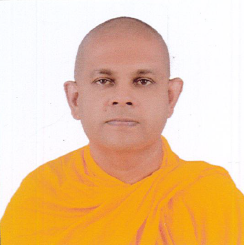
Abstract
Ethics in Jataka Tales & Their Relevance for Peace, Reconciliation, and Resilience Today
This presentation explores the ethical teachings embedded in the Jataka tales—stories of the Buddha’s past lives—and their relevance for promoting peace, reconciliation, and resilience (PRR) in today’s world. These narratives illustrate core virtues such as compassion, honesty, generosity, and perseverance while warning against greed and selfishness. Rooted in Buddhist tradition, Jataka tales have influenced cultural practices across Asia and continue to inspire ethical behavior and social harmony. Their timeless values offer guidance for personal growth, moral leadership, and community well-being in contemporary contexts.
Rev. Fr. Raphael Ling
Rev. Raphael Ling is a Catholic priest of the Archdiocese of Taipei, born in 1966 and ordained in 1996. As a seminarian, he received missionary formation in both Taiwan and Ireland, focusing on cross-cultural integration and holistic life development. He holds a Licentiate in Theology from the Pontifical Urbaniana University in Rome and a Ph.D. in Philosophy from Sophia University in Florence. He has been teaching philosophy of life, philosophy of religion, and Chinese calligraphy aesthetics. His past roles include rector of the minor seminary, director of the major seminary, parish priest, and director of mission at Fu Jen Catholic University, where he also served as chaplain and vice president for mission. He is currently CEO of the Kuang Jen Catholic Social Welfare Foundation, Executive Secretary of the Bishops’ Conference’s Commission for Interreligious Dialogue and Christian Unity, and Secretary General of the Taiwan Conference on Religion and Peace, comprising sixteen faiths.
Ven. Yan Tong (DDM, Taiwan)
Ven. Yan Tong entered Dharma Drum Mountain DDM as a Sāmaṇerī (novice nun) in September 2015 and studied at Sangha University for two years in pursuit of deeper Dharma education. She was ordained in September 2017 and received full ordination as a Bhikkhunī in December 2019. She is currently based at the main DDM monastery in New Taipei, Taiwan, serving in the Logistics and Facility & Maintenance Department. In addition to her administrative responsibilities, Ven. Yan Tong conducts basic Dharma sessions for devotees as needed. Deeply inspired by Master Sheng Yen’s vision of “uplifting the character of humanity and building a pure land on earth,” she is committed to promoting the Buddha Dharma in a way that is accessible and relevant to both the educated and uneducated, using modern language and daily living stories and examples to reach a broad audience.
Abstract
There are various schools within Buddhism in Taiwan. While the Catholic Church is unified, it also consists of seven dioceses, and communication and connection among us is something we must constantly pay attention to. We would like to share the interaction between Buddhism and Catholicism in Taiwan through four aspects:
1) Joint concern for the restoration efforts following earthquakes and other natural disasters,
2) Promotion of religious education,
3) Collaborative efforts between Catholics and Buddhists to foster interreligious connections among Taiwan’s various faith traditions,
4) Audiences with the Pope at the Vatican.
We are grateful for the longstanding mutual understanding and friendship between us. Even more, it is our shared pursuit of the Ultimate Reality that makes this interreligious dialogue not only sustainable, but increasingly valuable as we envision a future of greater harmony.
Cardinal Giorgio Marengo, I.M.C.
Cardinal Giorgio Marengo, I.M.C., Apostolic Prefect of Ulaanbaatar, Mongolia, was born in 1974 in Cuneo, Italy. After graduating from the Royal Lycée C. B. Cavour (Torino), from 1993 to 1995 he studied philosophy at the Theological Faculty of Northern Italy (Turin), and from 1996 to 1999, theology at the Pontifical Gregorian University, Rome. He then obtained a MA (2002) and a doctorate (2016) in Missiology at the Pontifical Urbanian University.
Ordained a priest in 2001, he was sent to Mongolia, where he contributed to establish a Catholic Community in Arvaiheer (Uvurkhangai Province), then serving as its first parish priest. Meanwhile, he collaborated to settling a centre for Interreligious Dialogue and Cultural Research in Kharkhorin (the ancient capital of the Mongolian Empire). He has been collaborating with the Dicastery for Interreligious Dialogue, attending the 5th, 6th and 7th Buddhist – Christian Colloquium.
In 2020, the Holy Father Francis appointed him Apostolic Prefect of Ulaanbaatar, Mongolia, and Bishop. He received the episcopal ordination by H.Em. Card. Luis Antonio Tagle.
Created a Cardinal by Pope Francis in the consistory of 27 August 2022, he’s a member of the Dicastery for Evangelization.
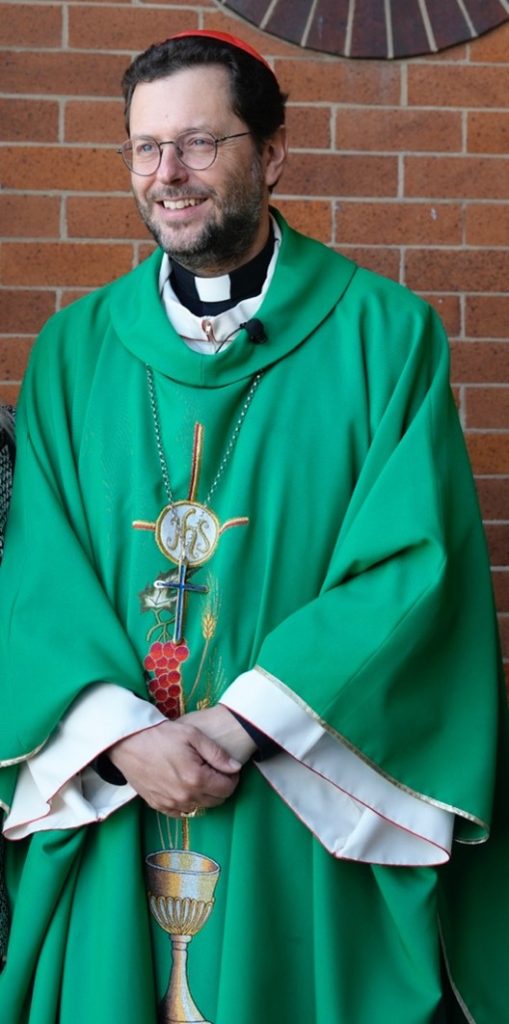
Regional Narratives of Peace, Reconciliation and Resilience
MONGOLIA
Abstract
Ven. A. Battsengel and Card. G. Marengo offer their testimony to the dialogue between the Buddhist and Catholic Traditions in Mongolia. In a rapidly changing society, the path of mutual understanding and common commitment to harmony between different religious groups are essential to promote the just contribution of Religions in Mongolian society. Through this fruitful exchange and collaboration at various levels, a culture of peace, which passes through reconciliation and resilience, is promoted. The short presentation also contains a tribute to contemporary Mongolian poetry.

